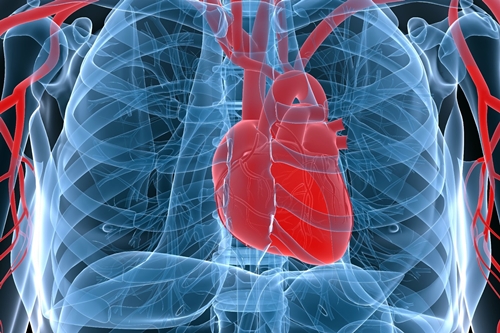
(CIRM.gov)
19 July 2017. A one year-old company in New York City is developing a device that assesses the severity of heart rhythm problems to prescribe a more precise course of treatment. Cardea Sciences, a spin-off enterprise from Mount Sinai medical school, received the a top prize in last month’s NYC Life Science Innovation Showcase.
Cardea Sciences was founded by Ya-El Mandel-Portnoy, a research fellow in emergency medicine at Mount Sinai, to commercialize a technology that more accurately evaluates atrial fibrillation, and identifies patients in the most danger of further heart damage. Atrial fibrillation is an irregular heartbeat or arrhythmia that can lead to stroke or heart failure, and affects some 2.7 million Americans, according to American Heart Association. With atrial fibrillation, heart muscle contractions in the upper chambers beat irregularly instead of in a regular rhythm, which can cause blood to pool and lead to blood clots, including those that move to the brain and cause a stroke.
The device being developed by Cardea Sciences is a bed-side heart monitor that measures differences in heart rate at various points in the body. These variations are called a pulse deficit, which occurs when the heart contracts inefficiently, such as in atrial fibrillation, with pulse waves not transmitted to peripheral sites in the body. The company says this more precise evaluation, if done early in diagnosis of atrial fibrillation or AFib, can highlight individuals at highest risk of of further heart damage, and spare people with a less dangerous outlook from unnecessary care.
“Cardea Sciences’ focus,” says Mandel-Portnoy in a Mount Sinai statement, “is on patient outcomes, empowering patients and clinicians to manage the disease by identifying those AFib patients who will not tolerate the arrhythmia well and will suffer from severe adverse events. This will help care providers optimize their course of treatment and reduce the number of readmissions, thus leading to a reduction in health care costs.”
At the NYC Life Science Innovation Showcase, Mandel-Portnoy received an award that provides lab and office space for Cardea Sciences at Alexandria LaunchLabs, a life sciences incubator in New York. Alexandria LaunchLabs provides health care and life science start-ups with mentoring, shared equipment, and seed-level financing, as well as office and lab facilities.
Cardea Sciences is currently part of E-Lab NYC, a program that provides business training and networking to scientists and engineers in the life sciences seeking to become entrepreneurs. Mandel-Portnoy became an E-Lab NYC fellow in December 2015.
In the following video, Mandel-Portnoy tells more about Cardea Sciences in a recent pitch competition.
- Start-Up Applying Artificial Intelligence to New Drug Uses
- Start-Up to Offer Neuro Disorder Speech Analytics App
- Immune Disease Start-Up Raises $28M in Early Funds
- $300M Fund to Back European Life Science Companies
- Fund Created for Point-of-Care Diagnostics, Treatment
* * *

 RSS - Posts
RSS - Posts
You must be logged in to post a comment.